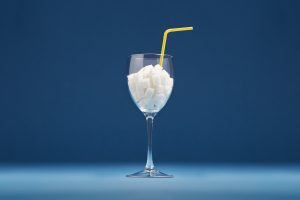Booze
Can Wines Affect Your Glucose Levels And How?
 Red, white, rosé, sparkling and dessert. All these words are connected to that one drink known as everybody’s favorite for evening meals and special occasions—wine. Its delicious taste gives us a variety of flavors from sweet, bubbly, earthy, and fruity. Wine lovers know it works best when paired with a favorite dish or dessert.
Red, white, rosé, sparkling and dessert. All these words are connected to that one drink known as everybody’s favorite for evening meals and special occasions—wine. Its delicious taste gives us a variety of flavors from sweet, bubbly, earthy, and fruity. Wine lovers know it works best when paired with a favorite dish or dessert.
Wine can also have numerous health benefits. It works as an anti-oxidant, anti-inflammatory, reduces blood pressure, and may even help reduce the risk of heart disease. It’s also said to reduce the risk of depression, improve metabolism, and promote longevity.
However, wine may not be good all the time. Excessive consumption can lead to serious health issues such as cancer, liver problems, and pancreatic diseases as well as unintentional injuries. Wine may also affect blood sugar levels and it can pose dangers, especially to people with diabetes.
So, is it time to store your wine glass and keep the cork on the bottle?
To enlighten you, here’s how wine impacts a person’s blood sugar levels and how you can continue to take moderate sips and still say cheers while raising that glass up.
How Wine Affects Glucose Levels
Before we delve into the question of how wine impacts glucose levels, let’s take a quick look at how wines get their sweetness and fizz.
Sugar is naturally found in ripe grapes which are converted into alcohol through fermentation. Any amount of sugar left is called residual sugar—the primary source of wine’s sugar content.
Identifying sugar content in wine can be seen in the nutritional information or on bottle labels such as dry wines, off dry wines, or sweet wines. Typically, dry wines have 0.5g to 4g per liter of residual sugar, sweet has more than 45 grams per liter, and off dry, in the middle of the two categories. Champagne and other sparkling wines have descriptions such as extra brut, brut, extra dry or extra sec, sec, demi-sec, and doux as a spectrum from driest to sweetest.
Sweet wines then, contain the highest residual sugar and may contain higher alcohol content as well. Again, drinking sweet wines in excessive amounts can possibly pose risks to people, particularly those diagnosed with diabetes, because their blood sugar levels may spike.
However, according to the American Diabetes Association, drinking red wine or any alcoholic beverage can decrease blood sugar for up to 24 hours. And for those with type 1 diabetes, this may cause hypoglycemia. Although its symptoms are most often confused as indications of drunkenness, hypoglycemia requires immediate treatment and medication.
No Sugar, No Wine?
The hazards posed by sweet wines and excessive drinking don’t mean you can’t enjoy a glass of your favorite drink.
A study made in 2015 shows that people with type 2 diabetes can actually lower their sugar level if they drink red wine moderately. In the succeeding year, another study reveals that drinking a glass or two can even lower the risk of type 2 diabetes. Wine, along with tea, and cocoa contain flavanols that are potentially preventive agents against diabetes. These benefits are due to the fact that wine increases insulin sensitivity and allows the body to process sugars and regulate blood sugar levels more efficiently.
That’s good news to people who want to enjoy wine after their evening meal or serve wine for the upcoming Christmas and New Year celebrations. However, drinking must be done in moderation, ideally in the standard serving of 5 ounces. That is equivalent to one drink a day for women and two for men below 65. Those with diabetes can incorporate wine in their low-sugar diet—with wine as a companion to their chosen meal or as a substitute for dessert.
‘Healthier Wines’
Aside from limiting your wine intake, you can also opt for a sugar-free wine instead. While there is actually sugar in all wines, low-sugar wines can have 1-3 g of sugar per 5-ounce pour. This can help you maintain safe glucose levels while enjoying a sip or two.
Since not all wines have nutritional information printed on bottles, you can discern the sugar content of a wine with labels such as ‘dry’ for white and red wines and ‘brut,’ ‘extra brut,’ and ‘extra dry’ for champagne and other sparkling wines.
Examples of dry reds include:
- Cabernet Sauvignon
- Merlot
- Pinot Noir
- Tempranillo
Dry whites come in the following varieties:
- Chardonnay
- Pinot Grigio
- Sauvignon Blanc
Sparkling Wines with less sugar content:
- Brut Champagne
- Prosecco
In the absence of the above-mentioned terms and wine variants, it is best to steer clear of wines that have words such as:
- Dessert, late harvest, ice wine, Spatlese, Eiswein, Dolce, Demi sec and Semi Sec
These wines have high sugar content and may augment your insulin levels after having one too many.
‘Wine’ More Advice
Drinking wine has numerous health benefits, especially for diabetes patients. It does not only regulate blood sugar levels, it can also prevent the occurrence of a heart disease. However, those with diabetes can only receive the full advantages of lower insulin levels if drinking is done in moderation. Aside from this, wine must also be consumed in conjunction with a healthy diet and regular exercise. Thus, wine can act as a supplement to maintaining a good health condition.
Diabetic patients may also consult with medical experts or their physicians before consuming wine as it may interfere with certain medications. They likewise need to monitor their blood sugar levels before, during, and after drinking wine to ensure that it’s within safe levels.
Let’s Drink To That!
As always, moderation is the key as anything excessive or deficient can bring detrimental effects to your health. With regard to wines, limiting intake to recommended servings can pave the way for numerous health benefits. One or two glasses a day is sufficient to ensure the body can process glucose properly, helping you maintain a healthy heart and mind.
While there are a variety of wines and flavors to choose from, selecting dry wines and low-sugar wines can be your best option to raising your glass for sumptuous meals, memorable events, and ultimately, for your continued good health.

























